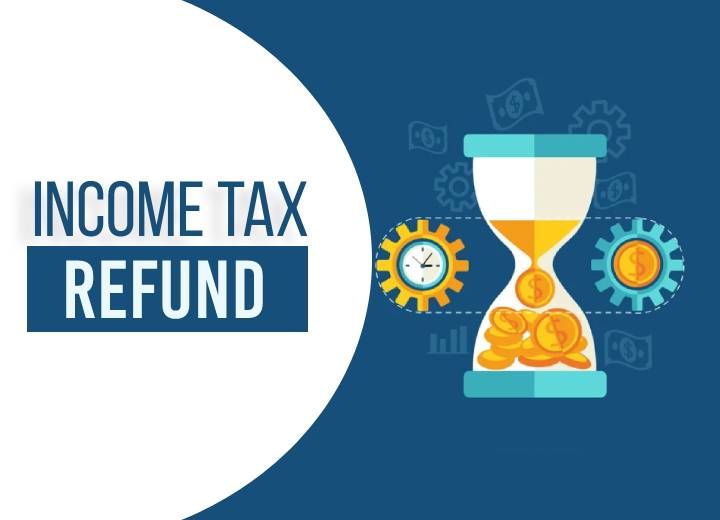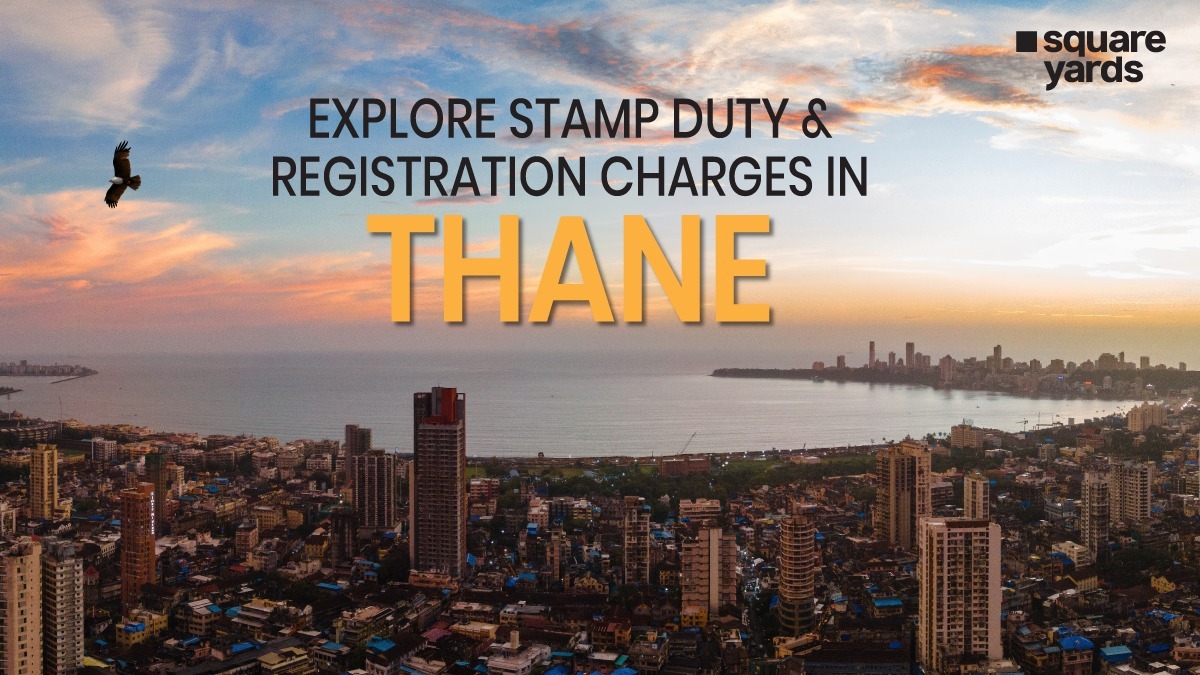Are you a regular income tax filing person? If not, then you must start now! And, if yes, then let us guide you more about ITR filings and how to get your income tax refund amount back, in case you have paid extra to the federal government.
Table of Contents
- What do you mean by Income Tax Refund?
- Why Income Tax Return is Necessary?
- What is the Eligibility Criteria for Income Tax Refund?
- How Can I Claim My Income Tax Refund?
- What is the Due Date to Claim Income Tax Refund India?
- In How Many Days Can a Taxpayer Expect a Tax Refund Back?
- How Can an Individual Track His Income Tax Refund Status?
- How is the Payment of Income Tax Refund Made?
- How to Check the Interest on Income Tax Refund, if Delayed?
- Frequently Asked Questions (FAQs)
What do you mean by Income Tax Refund?
An income tax refund is referred to as a paid excess tax amount returned to you by the income tax department into your bank account. In other words, an income tax refund is a reimbursement of the extra amount that you have paid by the government.
Also, the taxpayer may consider a refund as a bonus or prize, but mostly it is perceived as an interest-free loan that you as a taxpayer made to the Indian government.
Why Income Tax Return is Necessary?
Income tax return filing is necessary because it helps you avail multiple benefits. Here are some of them:
Easy And Fast Loan Approval
If you file an ITR, it will help you avail of loans for personal use, purchasing vehicles, house loans, and many more. And the best part is after seeing your ITR filings every major bank will easily approve your loan as they are authentic proof that verifies your income and the source. Therefore, easy loans.
Income Tax Return as Address Proof
The income tax return is not just a means of paying tax over your income to the government, but it also can be used as proof of your income and address.
Avoid Fines
If you do not file for an online income tax return or offline return, then the tax officer from the ITR department has every right to impose a fine or penalty of up to Rs.50,000 as per the Income Tax Act, 1961. So, to avoid fines and save yourself from penalties, you must timely file your ITR every year.
Claim Tax Refunds
When the entire taxable income for a particular year is less than the basic exemption limit, the tax liability for that year becomes nil. Now, in such cases, if any amount of tax is deducted from your salary, then you can claim a TDS refund. Don’t forget to mention all the financial details of your income and investments when filing your income tax return.
Visa Processing becomes Easy
No matter the type of visa you apply for when traveling abroad, you will have to present a copy of your income tax return for the last couple of years. This document, like the bank statement, offers them complete transparency regarding your savings, income, and source of that income. It seems that filing an income tax return would actually help you travel the world.
Saves You from Future Losses
Even if you incur some losses for your income by filing a return for a particular year, you save yourself from future tax liability. This can be used to set off any losses against the income for the following years, provided you file the return within the decided slab of its original date.
What is the Eligibility Criteria for Income Tax Refund?
Here are six conditions that make you eligible for an income tax refund.
- If the tax you paid exceeds the limit compared to the tax you have to pay, then you are eligible for income tax refund filing.
- If the TDS from your salary, interest, or dividends is more than the tax payable on a regular assessment basis.
- If the tax charged as per the regular assessments decreases due to an error in the assessment process was resolved.
- The same income is taxable in a different country, especially with which the Indian government has an agreement. This is to avoid double taxation issues.
- If the investments made by you offer tax benefits and deductions that are not declared by you.
- If you realize that the tax paid by you is negative compared to the actual tax you have to pay.
How Can I Claim My Income Tax Refund?
One of the effortless ways for income tax refund filing is to maintain all your investments in Form 16. It is used for life insurance, house rent, investments in equity or NSC or mutual funds or bank FDs, or tuition fees and so on while filing your IT returns and then submitting all the requisite evidence.
In any situation, if you have failed to do so and pay an extra amount of money to avoid it, then you have to fill the Form 30.
Form 30 is a request form addressed to an assessment officer to check your requests and then process your income tax refund. Make sure you claim my IRS refund before the end of the financial year. Furthermore, your claims must be accomplished by a return explained in the form as explained under Section 139 of the Income Tax Act, 1961.
What is the Due Date to Claim Income Tax Refund India?
An individual can claim their income tax refund within one year from the date when the assessment year came to an end. But in some cases, the assessing officers take more time to close such cases, especially when the claim was made after a specified due date.
However, there are some important notes you must keep in mind as a responsible taxpayer.
- The claim on an income tax refund is not acknowledged if you have completed six years of paying the tax.
- The amount of refund must not be equal to or more than Rs. 50 lakh for a single assessment year.
- No interest is given if you made late claims on the income tax refund.
- In case the late claims need validation, then the assessing officer will review the claims.
In How Many Days Can a Taxpayer Expect a Tax Refund Back?
According to the Income Tax Refund Act, 1961, a taxpayer can expect an income tax refund pending to be completed within 45 days from the date you have filed for an ITR online.
How Can an Individual Track His Income Tax Refund Status?
The ITR department allows you to track your income tax refund request. If the procedure of refund has not been completed by the officer in charge of your refund, then you will receive a message that notifies you about the same income tax refund filing online request. Depending on the payment mode of the refund (direct transfer or cheque), you can follow these simple steps below to check your income tax refund status.
Refund Sent Using Direct Transfer
You can receive your excess amount through an ECS transfer or RTGS or NECS directly into your account using a ten-digit account number and MICR code. The State Bank of India is used for making such transactions. Track your income tax refund easily by visiting the official website of the Income Tax Department. Enter your PAN number and the respective assessment year for complete refund details.
Refund Sent Using Cheque
You can track this more easily. Simply check with the speed post service using the reference number or track ID given by the ITR department to track your ITR refund.
How is the Payment of Income Tax Refund Made?
If you have claimed for the income tax refund, then there are possibly only two ways through which you will receive the income tax refund amount. Here are the following methods:
First Method: Direct Transfer to the individual’s Bank Account
Direct transfer is the first option used to transfer the excess amount a taxpayer paid at the time of income tax refund filing. With the easy and fast method of direct transfer, the taxpayer will readily receive the amount into his bank account. This direct transfer is made using NECS or RTGS. Therefore, an individual needs to fill in the required details of their bank account when filing for an online income tax refund.
Second Method: Using Cheque for Income Tax Refund
Using the cheque method for Income Tax Refund is an alternative procedure. If, as a taxpayer, you have not provided all the relevant details of your bank, missed details, are wrong, or left it incomplete at the time of Income Tax Refund filing online, then the ITR department will use the account number and will issue a cheque on the name of the taxpayer.
How to Check the Interest on Income Tax Refund, if Delayed?
If someone applies for an income tax refund and it gets delayed, then the Income Tax Department has to pay an interest of 6%. This law falls under Section 24 4A of the Income Tax Act 1961.
However, the interest on income tax refund will be applicable from the date you paid the tax to the date on which you receive the refund in your account.
For example, if you claim to have sent Rs. 10,000 in excess for the year 2018-2019, then you will receive the refund in March 2019. The applicable interest on the income tax refund amount will then be calculated from April 2018 to March 2019.
You May Also Read:
| Income Tax Top Blogs | Income Tax Related Blogs |
| Income Tax | TDS |
| Income Tax Refund Status | Form 26 |
| Income Tax Return | Direct Tax |
| Income Tax e-Filing | HRA-House Rent Allowance |
| Income Tax Slabs | Tax Exemption |
| Online Tax Payment | Challan 280 |
| Income Tax Portal | Advance Tax |
Frequently Asked Questions (FAQs)
If by chance someone paid the extra tax, will it be refunded back?
Yes, one will receive the excess amount paid while filing the ITR. One just has to file the income tax refund, and then the extra amount will be processed and reimbursed. The Indian government will refund the amount using the Electronic Clearance Service. However, you have to confirm that your bank account is linked with your PAN card so that the transaction can take place easily and without any hassle.
What is the meaning of Form 26AS? And what forms do I have to use to pay my tax?
Form 26 AS contains all the data regarding the information about all the tax deducted on one’s income. It is basically a credit statement. For paying your tax, you have to fill the three forms, including TDS (Tax Deducted at Source), TCS (Tax Collected at Source), and an advance tax or payment of any tax on regular charge.
How can I proffer any proof that I am filing my income tax returns?
You don’t have to show any record of filing your income tax return. However, you have to provide the complete information of your Aadhar Card to file your income tax return (ITR).
Who should I contact for resolving my IRS refund related inquiries?
If you have any inquiries related to the excess paid tax, then you can simply contact the Aayakar Sampark Kendra. You can call on income tax customer care number 1800-180-1961. The other option is to contact them via email at – refunds@incometaxindia.gov.in.
If you want to make any changes, then contact the toll-free number 1800-425-2229 or 080-43456700. For other payment connected inquiries you must connect with the SBI contact centre at their toll-free number 1800-425-9760.
In how many days will the income tax refund come to my bank account?
The income tax refund amount will reach your bank account within 45 working days of ITR processing.
Through which medium will I receive my income tax refund?
You will receive the income tax refund amount in two ways: Direct transfer to your bank account or via cheque.













































